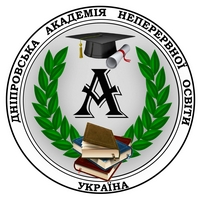FOREIGN EXPERIENCE OF PUBLIC ADMINISTRATION IN THE FIELD OF CULTURE
Abstract
The article examines foreign approaches to public administration in the field of culture, including structures, mechanisms and policies that help ensure cultural development and strengthening of national identity. The study focuses on the systems of public administration in the field of culture in the European Union: Germany, Italy, France, and Spain. It has been found that all countries focus their efforts on protecting and promoting cultural heritage, supporting cultural projects and programs, developing cultural heritagerelated tourism infrastructure, and preserving and promoting the diversity of cultural traditions and national identities. However, each country has its own peculiarities and specific tasks, such as supporting contemporary art and culture, preserving cultural traditions and minority languages, or developing tourism infrastructure. This comparative approach allows us to take into account the different cultural, historical, and political contexts in which public administration of culture is implemented. In addition, the study aims to examine international cooperation in the field of culture as one of the key factors in the development of cultural space and the expansion of intercultural dialogue. The article emphasizes that culture is a fundamental aspect of human society which reflects the spirituality of a nation and its historical roots. It is proved that the importance of public administration in the field of culture lies in the formation of strategies for the development of the cultural sphere, preservation of cultural heritage and ensuring access to cultural goods. In this context, foreign experience in public administration of culture can be an important source of information and inspiration for reforms in this area at the national level. Studying the experience of countries that actively cooperate in international cultural exchange will help to identify principles and practices that can contribute to the development of Ukraine’s cultural ties with other countries and international organizations. In general, the systems of public administration of culture in the countries under consideration have many similarities and differences, but they are all aimed at protecting and promoting cultural heritage and the diversity of cultural traditions, which is an important task in the modern world.
References
2. Грушина А. І. Особливості організації системи менеджменту сфери культури та мистецтв. Вісник Київського національного університету культури і мистецтв. Серія: Менеджмент соціокультурної діяльності. 2018. № 1. С. 53-63.
3. Здіорук С. І. Культурна політика України: національна модель у європейському контексті: аналіт. доп. Київ: НІСД, 2012. 64 с.
4. Конвенція про охорону та заохочення розмаїття форм культурного самовираження від 20.10.2005. URL: https://uccs.org.ua/konventsiia-pro-okhoronu-ta-zaokhochennia-rozmaittia-form-kulturnoho-samovyrazhennia-2/ (дата звернення: 22.03.2023).
5. Кучин С. П. Особливостідержавної політики в сфері культури та освіти (соціально-економічний аспект). Зовнішня торгівля: право, економіка, фінанси. 2013. № 2. С. 40-48. URL: http://zt.knute.edu.ua/files/2013/2(67)/uazt_2013_2_8.pdf (дата звернення: 22.03.2023).
6. Манько С. Б. Основні напрямки розвитку державного регулювання у сфері культури в Україні. Вісник національного університету цивільного захисту України. Серія: Державне управління. 2017. Вип. 2. С. 148-156. URL:https://nuczu.edu.ua/sciencearchive/PublicAdministration/vol7(17)/21.pdf (дата звернення: 22.03.2023).
7. Місевич М. А., Дідковська Т. В. Європейський досвід управління в сфері культури. Журнал «Агросвіт». 2020. № 5. С. 56-63. URL: http://www.agrosvit.info/pdf/5_2020.pdf (дата звернення: 22.03.2023).
8. Овчаренко С. В. Гуманітарна та культурна політика: навч. посіб. Одеса: ОРІДУ НАДУ, 2013. 152 с. URL: http://www.oridu.odessa.ua /9/buk/ovcharenko.pdf (дата звернення: 23.03.2023).
9. Caldonazzi G., Corso Di Laurea Magistrale Interfacoltá. In Economia E Gestione Delle Arti E Delle Attivitá Culturali. Tesi Di Laurea. Cultura e Economica: uno sviluppo possible. URL: http://dspace.unive.it/bitstream/handle/10579/1608/829636-154586.pdf (дата звернення: 02.06.2023).
10. Dobroslawa Wiktor-Mach. What role for culture in the age of sustainable development? UNESCO’s Advocacy in the 2030 Agenda negotiations. International Journal of Culture Policy. October. 2018. Р. 312–327.
11. OECD Culture and Local Development: Maximising the Impact. 2018. Paris: OECD Publishing. URL: https://www.oecd.org/cfe/leed/venice-2018-conference-culture/documents/OECD-ICOM-GUIDE-MUSEUMS-AND-CITIES.pdf (дата звернення: 16.03.2023).
12. UNESCO Global Citizenship Education: Topics and learning objectives. 2015. URL: https://en.unesco.org/news/globalcitizenship-education-topics-and-learning-objectives (дата звернення: 15.03.2023).
13. Cultural Diplomacy in Europe: Between the Domestic and the International. Caterina Carta and Richard Higgott (eds.). London, Cham: Palgrave Macmillan, 2020. 292 p.

 ISSN
ISSN  ISSN
ISSN 

